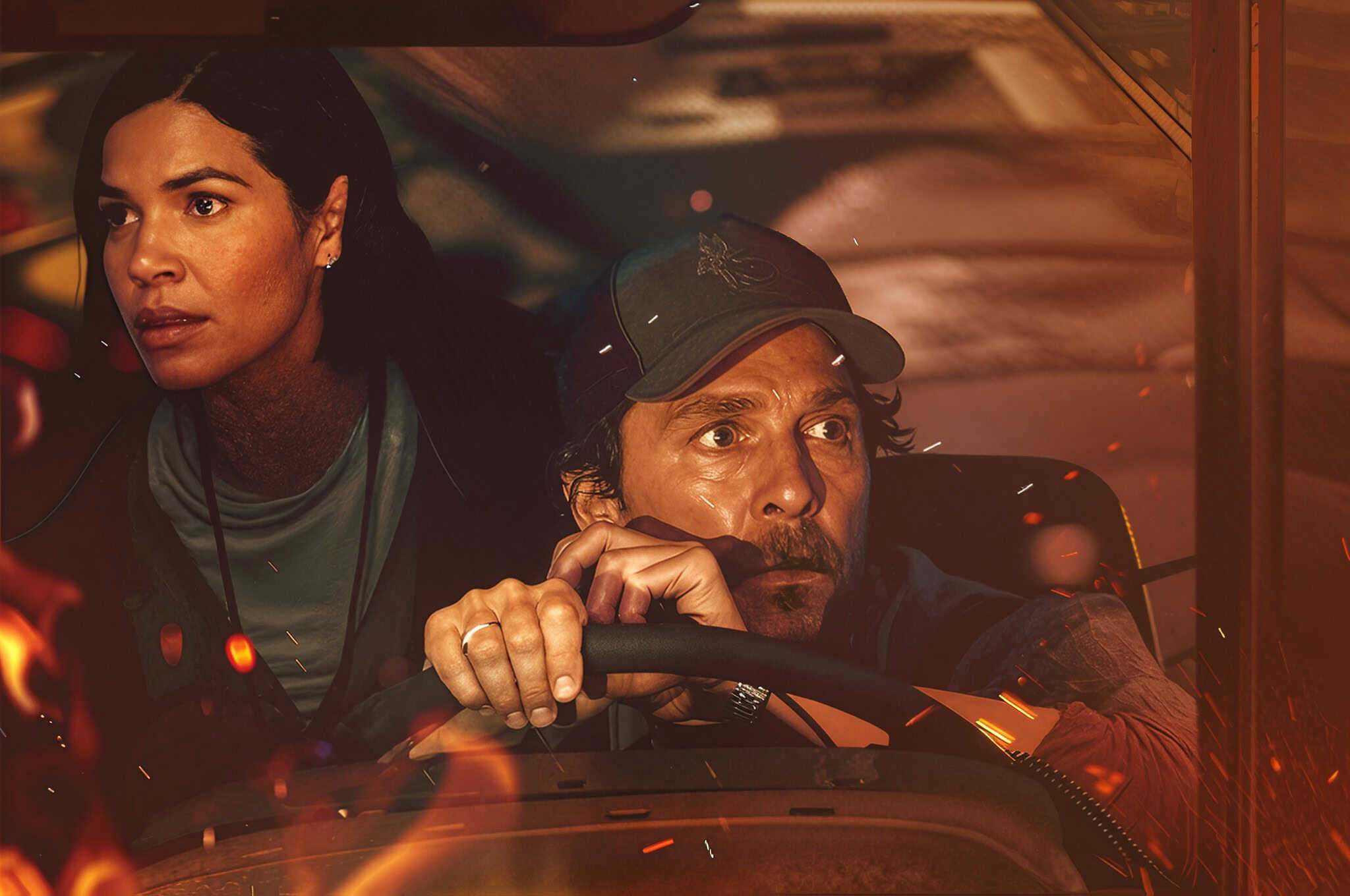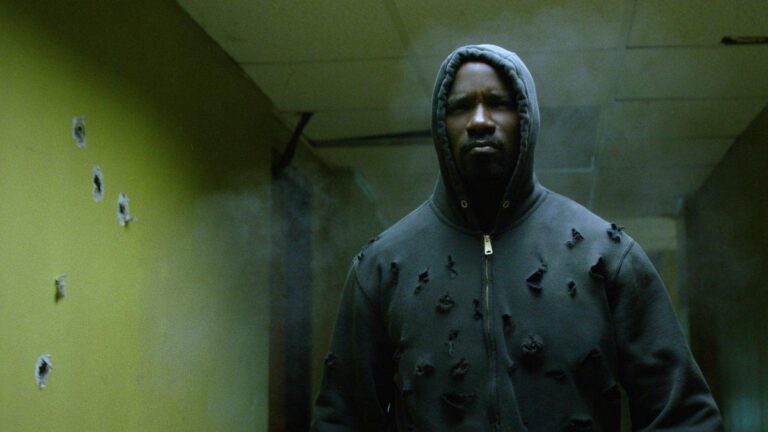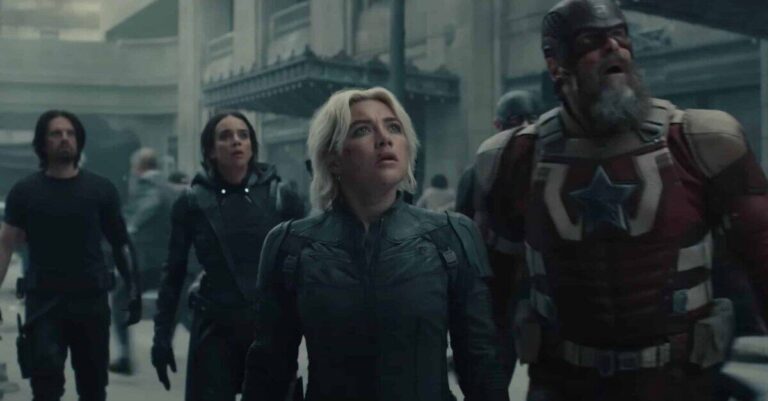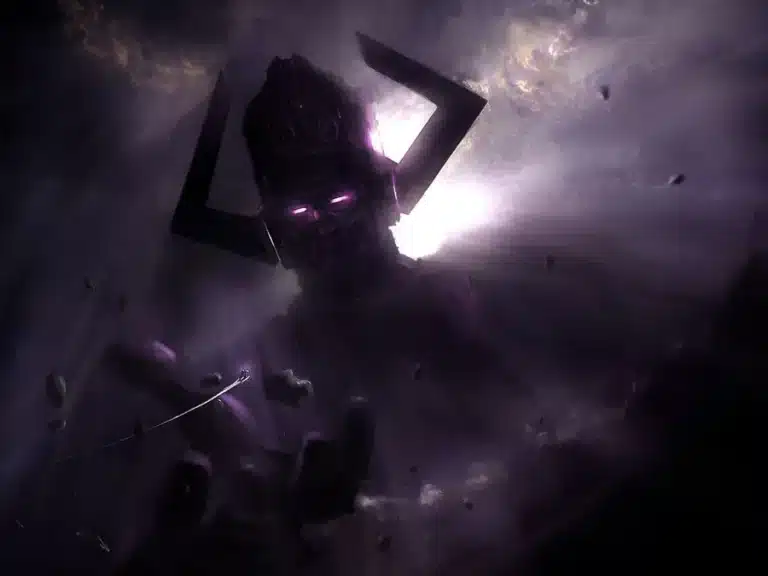How Paul Greengrass Shot ‘The Lost Bus’ Using a Real School Bus and Actual Fire
When director Paul Greengrass first heard about a school bus driver who saved 22 children during California’s most catastrophic wildfire, he knew immediately this was a story he had to tell. The Lost Bus doesn’t just recreate the terrifying events of the 2018 Camp Fire—it throws you right into the driver’s seat alongside Kevin McKay as flames close in from every direction.
This isn’t your typical disaster movie. Greengrass, the mastermind behind white-knuckle thrillers like Captain Phillips and United 93, has crafted something that feels devastatingly real because, well, it actually happened. And the emotional weight of that reality hits you like a freight train.
When Hell Came to Paradise
November 8, 2018. That’s a date burned into California’s memory forever. What started as a simple power line failure in Butte County quickly spiraled into an unstoppable monster that would claim 85 lives and displace over 50,000 people. The town of Paradise became ground zero for nature’s fury unleashed.
But here’s where The Lost Bus gets its beating heart: amidst all that chaos and destruction, bus driver Kevin McKay (Matthew McConaughey) and teacher Mary Ludwig (America Ferrera) became unlikely heroes. When an emergency call came through about 22 stranded children, McKay had a choice to make. He was already dealing with his own family crisis—a terminally ill mother and a strained relationship with his teenage son. Every instinct screamed at him to get to safety.
Instead, he answered that call. And what happened next was nothing short of miraculous.
Greengrass Makes You Feel Every Flame
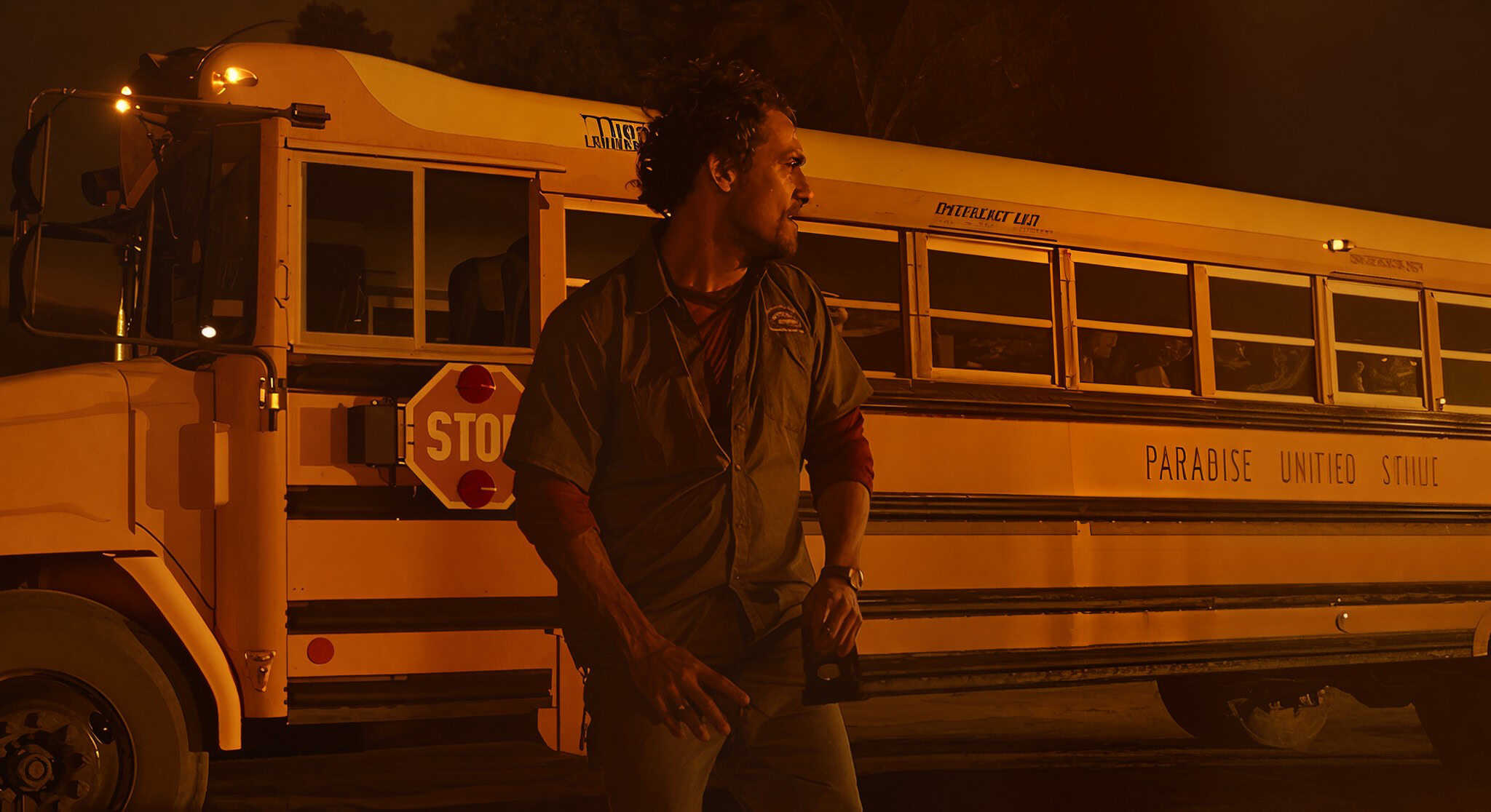
Paul Greengrass doesn’t mess around when it comes to authenticity. The man who turned airline hijackings and Somali pirate attacks into edge-of-your-seat cinema has outdone himself here. Working alongside co-writer Brad Ingelsby (Mare of Easttown), he’s taken Lizzie Johnson’s award-winning book Paradise and transformed it into something that feels like you’re living through the nightmare yourself.
“Any kind of compression in the story gives you cinematic possibilities,” Greengrass said. “And I’m interested in kinetic cinema, the cinema of motion. If you are in the middle of a dangerous situation, your camera moves with you.”
That kinetic energy is everywhere in The Lost Bus. From the moment McKay starts that engine, you’re locked into his world of impossible decisions and split-second reactions. The flames don’t just threaten the characters—they become a character themselves, prowling and hunting with an almost predatory intelligence.
Real Fire, Real Terror, Real Stakes
Here’s what makes The Lost Bus genuinely terrifying: Greengrass used actual fire. Not CGI flames dancing safely on a green screen, but controlled gas burns that created real heat, real smoke, and real danger. The production team laid gas lines across an abandoned arts college campus in New Mexico, creating an inferno that the actors had to navigate while keeping 22 child performers safe.
“It became a sort of terrifying adventure for all of us,” Greengrass said. The director had just one hour each day during magic hour to capture the apocalyptic lighting conditions. Three takes. That’s it. The pressure was suffocating, but it created an intensity that translates directly to the screen.
McConaughey and Ferrera didn’t just act like they were surrounded by fire—they actually were. And those kids? They weren’t acting scared. They were genuinely experiencing something beyond their wildest nightmares, with their on-screen guardians guiding them through it just like their characters would.
More Than Just Survival—It’s About Hope
The Lost Bus works on multiple levels that’ll leave you emotionally wrecked. On the surface, it’s a survival thriller that’ll have you gripping your seat as the bus navigates through walls of flame. But dig deeper, and you’ll find a story about redemption, sacrifice, and what it means to be a hero when everything goes to hell.
McKay isn’t your typical movie hero. He’s flawed, struggling with personal demons, trying to be a better father and son while his world literally burns around him. McConaughey brings a raw vulnerability to the role that makes every decision feel like it could be his character’s last.
“He’s a movie star, obviously, but also a brilliant character actor,” Greengrass said about his leading man. “He comes from Texas, and had an absolute affinity with Paradise and Kevin’s world.”
The film’s most gut-wrenching moments come when McKay has to choose between saving himself and saving those kids. It’s a choice that real people had to make during the Camp Fire, and Greengrass never lets you forget that weight.
A Mirror to Our Climate Reality
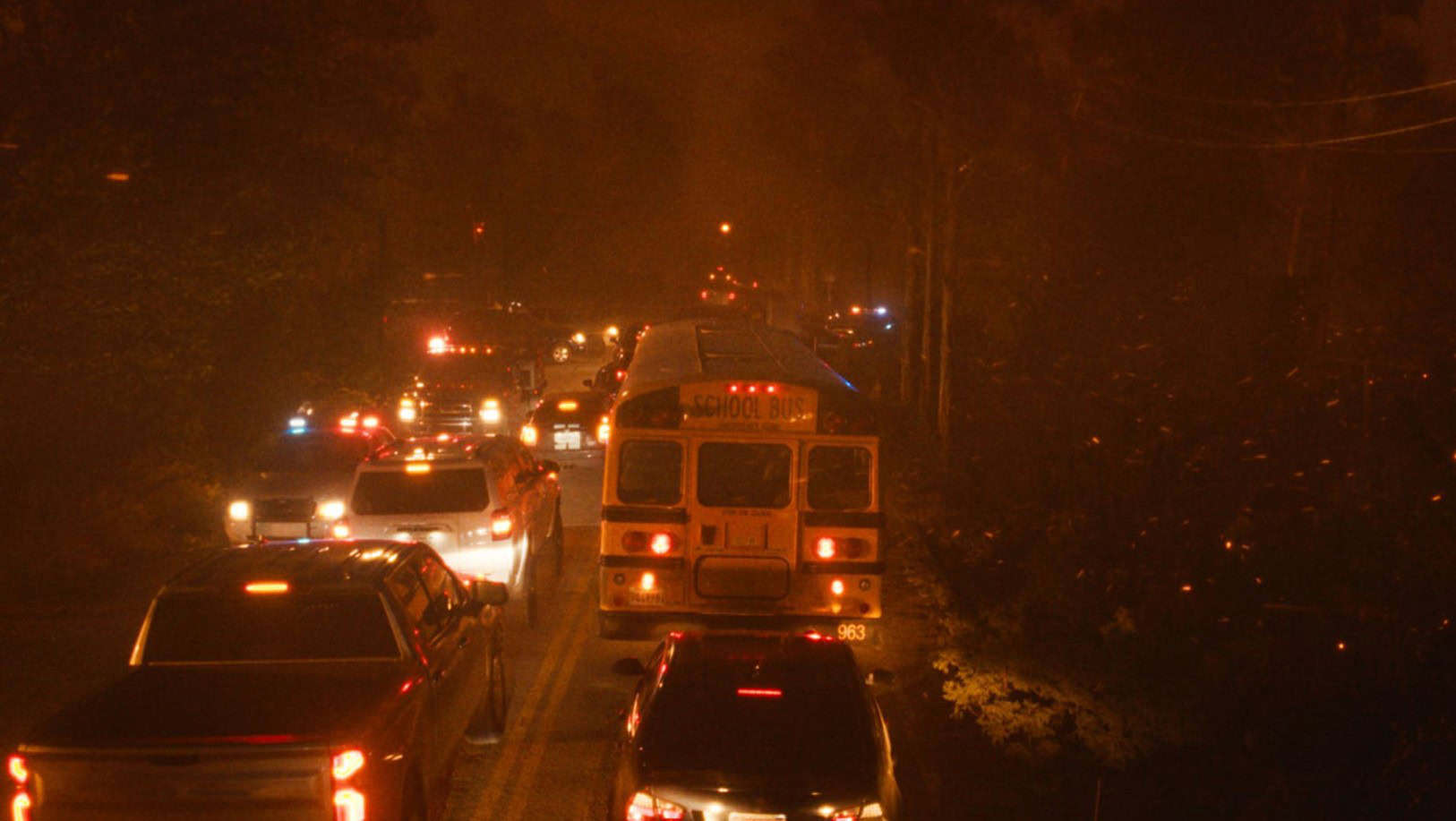
While The Lost Bus never beats you over the head with environmental messaging, it’s impossible to ignore the elephant in the room. These fires are getting worse. They’re happening more frequently. And they’re destroying entire communities.
There’s one moment when fire chief Yul Vazquez looks directly into the camera and states the obvious: “Every year, the fires get bigger, and that’s the truth. We’re being damn fools.” It’s the film’s only overtly environmental statement, but it reverberates throughout every frame.
Greengrass finished post-production just as the Los Angeles fires erupted in early 2025. His editor nearly lost his house. Reality crashed into fiction in the most unsettling way possible.
“We realized that we’ve created these images that are a part of the world we live in,” Greengrass reflects. “And that we are going to have to learn to deal with these life-threatening events.”
The Final Verdict
The Lost Bus is the kind of film that stays with you long after the credits roll. It’s Greengrass at his absolute best—taking a true story of ordinary people doing extraordinary things and crafting it into something that feels both intimate and epic.
This isn’t just another disaster movie. It’s a reminder that heroes aren’t born—they’re made in moments when everything goes wrong and someone decides to do what’s right anyway. McKay and Ludwig didn’t set out to be heroes that November morning. They just answered a call for help when 22 kids needed them most.
In our age of increasing climate disasters, The Lost Bus feels urgently relevant. It’s a story about human resilience in the face of environmental catastrophe, wrapped in a thriller that’ll leave you breathless.

